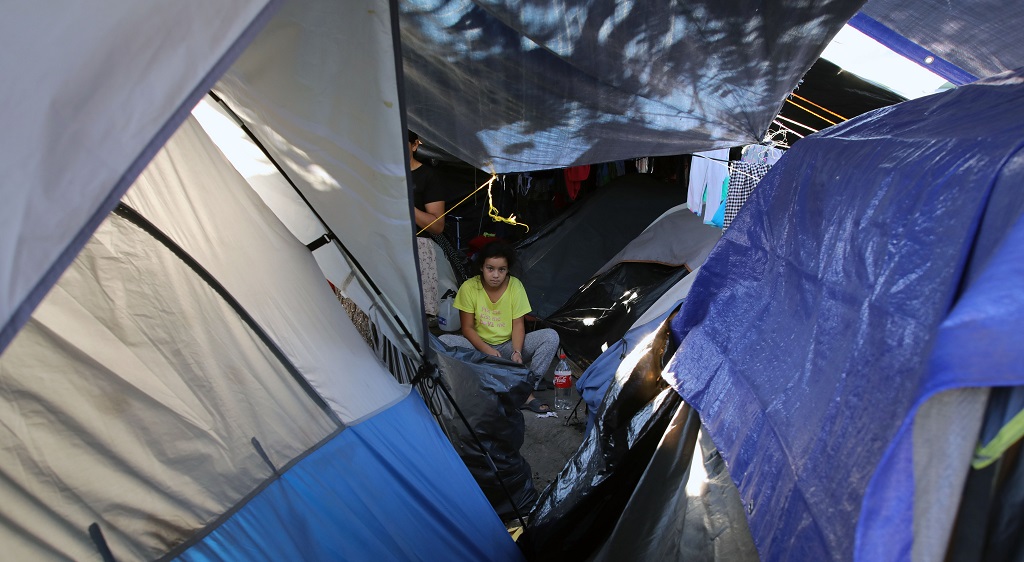Almost a year after the Supreme Court allowed a federal judge in Texas to order the Biden administration to restart the so-called “Migrant Protection Protocols” (MPP), the Supreme Court ruled in the Biden administration’s favor on June 30. The decision will not only permit President Biden to finally end MPP, also known as the “Remain in Mexico program, but it also holds that the original injunction ordering the administration to restore the program was procedurally invalid.
As a result, Department of Homeland Security Secretary Mayorkas’s October 2021 memo terminating the program a second time will go into effect. The Biden administration can now end the program in the short term while challenges to that renewed memo work their way through the courts.
The decision was written by Justice Roberts, who was joined by Justices Kavanaugh, Breyer, Kagan, and Sotomayor. Justice Barrett wrote separately to say that she agreed with the merits of the decision, but she dissented because she believed the case should have been dismissed on procedural grounds. Only Justices Alito, Thomas, and Gorsuch agreed with Texas that the Biden administration was required to maintain the program.
In the short term, the decision likely means an end to MPP at the border. With Secretary Mayorkas’ second termination memo likely to go into effect in the upcoming days, the Biden administration should be able to begin winding down the program and will hopefully permit the reentry of the over 5,000 individuals it had sent back to Mexico to await their day in immigration court. However, litigation over the program will continue in Texas as to whether Mayorkas’ memo was valid under the Administrative Procedure Act.
In his decision, Justice Roberts squarely rejected all arguments that Texas had won in the lower courts. He ruled that the language of the immigration law, which says that any administration “may” send people to Mexico, does not require the Biden administration to send people to Mexico if it cannot detain all others who cross the border.
Roberts also rejected the 5th Circuit’s attempt to deny all legal effect to Secretary Mayorkas’ October 2021 memo. He also rejected the 5th Circuit’s implication that Mayorkas was not open to the possibility that MPP should remain in place. This makes it clear that a new presidential administration is allowed to make its own policy decisions based on its own point of view and priorities.
In the most debated aspect of the decision, Justice Roberts held that a section of the Immigration and Nationality Act stripped the lower courts of their authority to issue the type of injunction that required the Biden administration to reinstate the policy. However, he ruled that the lower court did have jurisdiction to hear the lawsuit in the first place, but it was not allowed to enter an injunction against the policy.
All four dissenters disagreed, saying that they thought this analysis was not ripe for decision and that they believed the lower court needed to consider more arguments on whether it should have been able to hear the lawsuit in the first place, in light of the Supreme Court’s recent decision in Aleman-Gonzalez.
This decision on jurisdiction will have significant ramifications for immigration enforcement lawsuits, further limiting the authority of courts in cases not brought by individual immigrants. There will be more court battles about what this limit means, and whether a court can “vacate” a policy under the Administrative Procedure Act without running afoul of the limitations. It is also unclear what it means for a court to hear a lawsuit in a case where it doesn’t have the authority to issue a binding ruling. There will be years of litigation going forward establishing the bounds of this decision.
Despite the long-term implications on immigration civil rights litigation, Thursday’s decision was an unmitigated victory for the Biden administration. It will be able to end the Remain in Mexico program for now. But for asylum seekers, Title 42 remains the number one obstacle to seeking protection in the United States, so the decision will have a much more muted effect. For those who are waiting at the border for a chance to seek protection, some will benefit, but most will be unaffected.
FILED UNDER: Biden Administration, Migrant Protection Protocols, Supreme Court


